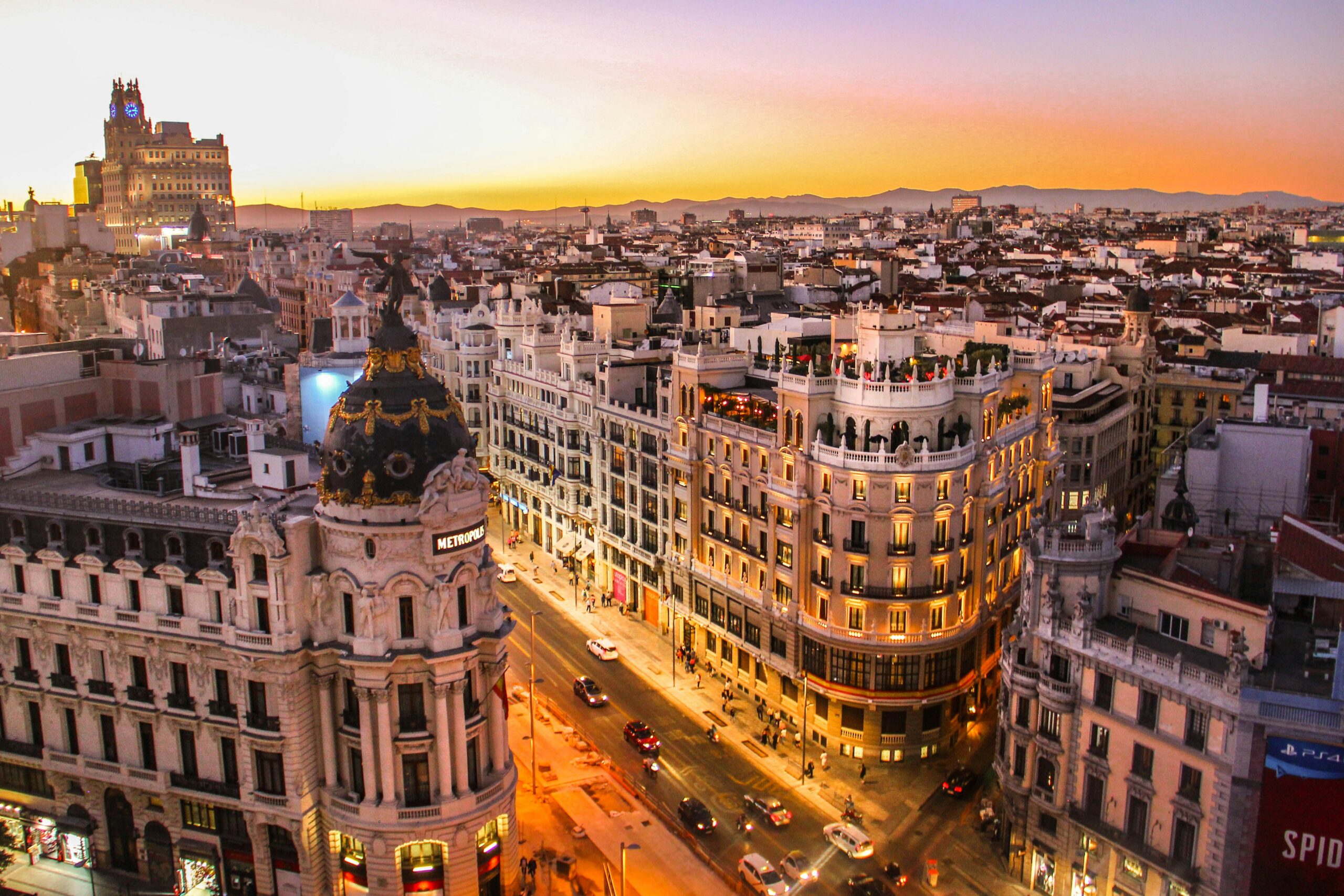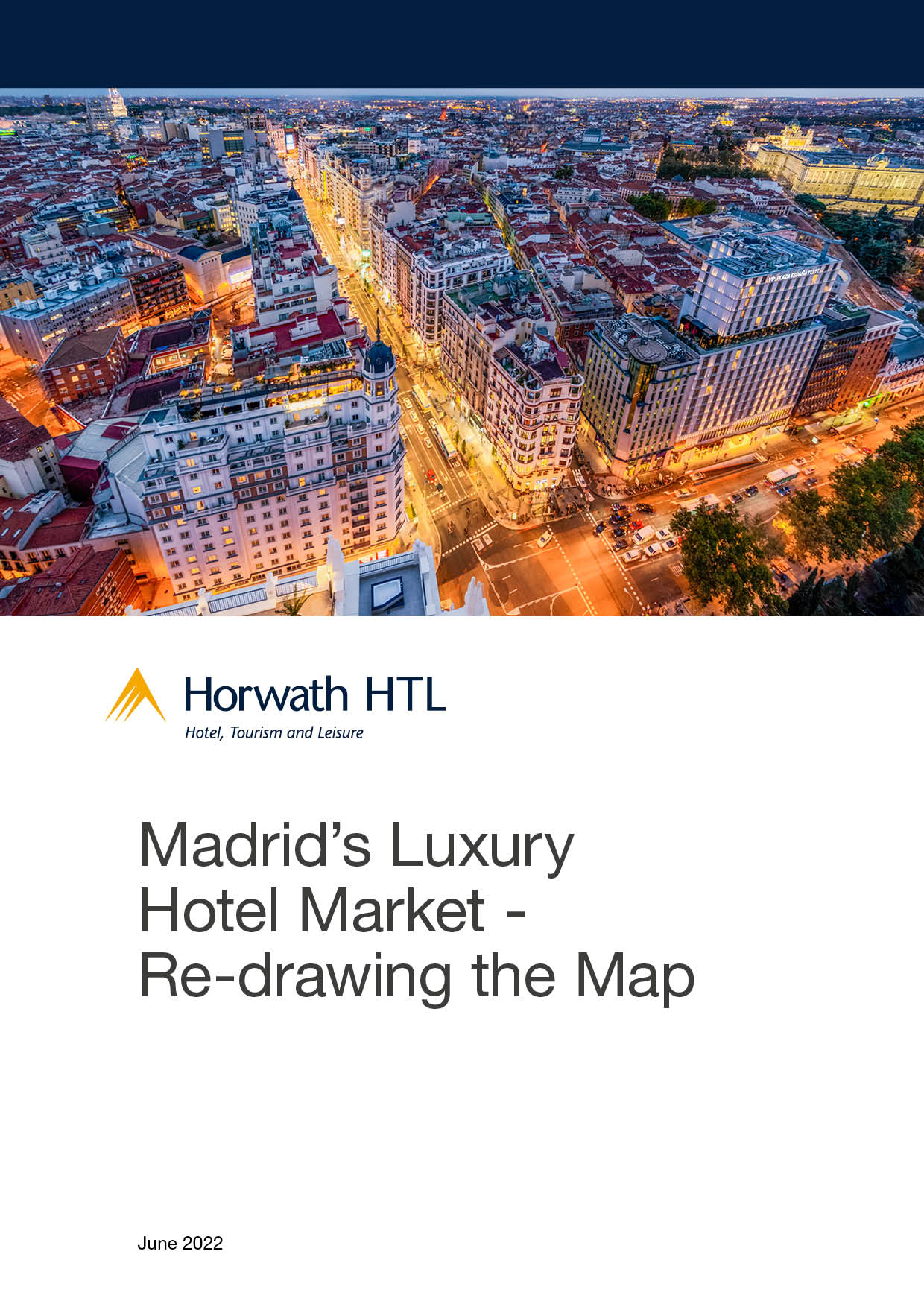
Report
Madrid Luxury Hotel Market: Re-drawing the Map
June 2022
Market Recovery and Performance:
Madrid’s hotel market is undergoing a significant transformation, particularly in the luxury segment. The city's international visitor numbers now make up nearly half of the total tourists, leading to a surge in upscale and luxury hotel openings.
This evolution reflects the broader growth in Spain’s luxury tourism market, which was valued at over $15 billion in 2020 and is expected to expand at a CAGR of 16% from 2021 to 2027.
Spain’s Luxury Hotel Market
Spain has seen substantial growth in its luxury hotel sector, with an estimated 64,000 rooms across 439 establishments as of Q2 2022. Despite the pandemic causing delays, the market has rebounded with numerous new openings, especially from major hotel chains such as Marriott International. The trend towards “asset light” strategies, including sale and leaseback operations, has also been notable, with significant transactions like the sale and repurchase of the Hotel Único in Madrid.
Madrid’s Luxury Positioning
Madrid is enhancing its appeal as a luxury destination through various strategic initiatives. The city offers unique experiences, including private museum tours, high-end gastronomy, and exclusive shopping. The City Council’s “Tourism Strategic Plan 2020-2023” and the “Marca Madrid” project aim to elevate the city’s global competitiveness and attract high-impact tourism.
Key Developments and Trends
- Recent Openings and Pipeline Projects: New high-end hotels such as the Four Seasons Hotel Madrid, Mandarin Oriental Ritz, and Rosewood Villa Magna have set a new standard for luxury in the city. Upcoming projects include the JW Marriott, Nobu Hotel, and Curio Collection by Hilton, which are expected to further elevate Madrid’s luxury hotel market.
- Location and Accessibility: The central areas of Madrid, including Gran Vía, Puerta del Sol, and Barrio de Salamanca, are hotspots for luxury hotel developments. These locations offer easy access to major attractions and are crucial for the success of luxury properties.
- Market Segmentation and Pricing: Madrid’s luxury hotels cater to diverse budgets, with room rates ranging from €200 to over €1,000 per night. International brands typically command higher rates, driven by larger room sizes, prime locations, and extensive amenities.
Challenges and Opportunities
The rapid influx of new luxury hotels brings increased competition, requiring operators to establish clear brand identities and target specific market segments. Despite the positive trends, Madrid’s luxury hotel market faces challenges such as market saturation and the need to continuously adapt to changing consumer preferences. The city’s ability to attract and retain high-spending tourists will be crucial for sustaining growth in the luxury segment.
Download the report
For detailed charts, graphs, and further analysis, download the full report here
